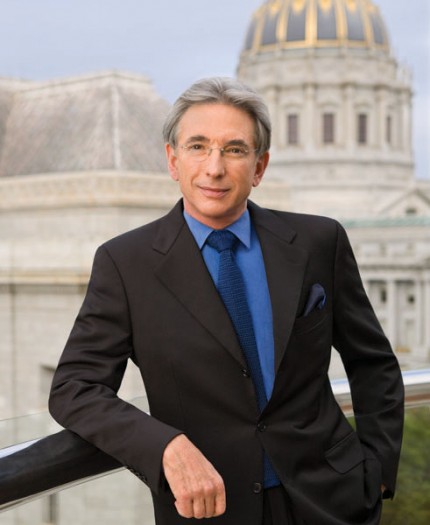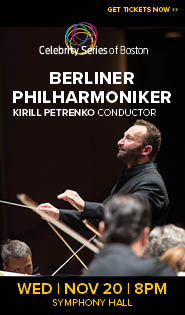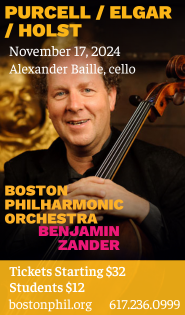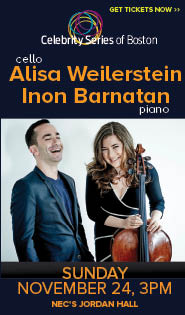After 20 years, Michael Tilson Thomas and the San Francisco Symphony are still coloring outside the lines
Nearly 41 years ago, a lanky 29-year-old stepped onto the stage of the War Memorial Opera House and gave the downbeat for his debut performance with the San Francisco Symphony. The program was Mozart’s Piano Concerto No. 17 with soloist John Browning and—significantly—Mahler’s epic Symphony No. 9.
In a San Francisco Examiner review headlined “A very remarkable young conductor,” Alexander Fried wrote that early in the evening, the young maestro seemed “wonderfully talented and promising” while with the final movement of the Mahler, he stood forth as a maturely [sic] masterly conductor.” Writing in the San Francisco Chronicle, critic Robert Commanday praised the “magnificent” Mahler performance, noting that the young conductor avoided “flashiness and hyper-emotionalism” and instead “discovered the depth and breadth of Mahler’s ultimate statement.”
That conductor, of course, was Michael Tilson Thomas. Appointed music director of the San Francisco Symphony in 1995, over the next two decades he would take the orchestra in the city by the bay to new artistic heights and international acclaim.
Boston audiences will get to experience this feted partnership when Tilson Thomas leads the San Francisco Symphony in a concert at Symphony Hall Sunday night, an event presented by the Celebrity Series.
The fourth stop on a seven-city U.S tour marking his 20th anniversary season as SFS music director, the concert will offer music of Liszt, Samuel Adams, Ravel, and Prokofiev with violin soloist Gil Shaham.
Tilson Thomas can be a serious, distant and, occasionally, prickly presence on the podium, especially when interpreting composers he is most passionate about, like Mahler, Stravinsky and Tchaikovsky.
Yet offstage when he is feeling comfortable–often after a fine performance—he can be relaxed, engaging, charming and, even a bit goofy.
Such was the case earlier this fall after a matinee by the San Francisco Symphony at their home in Davies Symphony Hall.
“Okay, Larry,” he said picking up a megaphone in his backstage office and speaking through it. “We didn’t tell you about this but I’m now doing all interviews this way. What is your first question?”
The American conductor, who will turn 70 on December 21 has reason to feel good. He has long ago earned a place as one of our finest podium leaders, a conductor who for many, has no current peer in music of Mahler, Stavinsky and American repertory.
Tilson Thomas famously got his start in Boston as assistant conductor with the BSO. The New World Symphony, which he co-founded in Miami Beach and has served as artistic director of since 1988, has had a huge and continuing impact, providing post-conservatory training for innumerable musicians who have taken positions with top symphonic ensembles around the world.
Yet while he has long-running relationships with New World, the London Symphony Orchestra, and other ensembles, the conductor’s relationship with the San Francisco Symphony is his longest continuing partnership, one that remains special and unique.
“We have a terrific relationship,” he said of the two-decade bond. “It’s so extraordinary. After 20 years, our communication is the easiest and the most open that it’s ever been.
“And we keep doing unusual things. We keep growing. I keep being inspired by what I’m hearing onstage and the potential of what I see on stage. There just always seems to be some wonderful new thing just coming up around the corner.
“They’re always willing to take risks. Perhaps even more importantly they’re willing to take certain risks and then see what about that risk was the most productive, and then they refine it their own way.”
Perhaps the city of San Francisco with its open and liberal social traditions has provided a foundation of sorts for the more democratic form of music-making and relationship with the SFS players.
“I’m sure that’s true,” says MTT. “I mean, my being a reasonably out gay man with a partner of many decades—that was never any kind of an issue here.
“We seem to be about coloring outside of the lines here,” he says with a laugh. “In a lot of different ways—musically, socially, organizationally. That just seems to be where we are.”
While MTT has enjoyed long relationships with many international ensembles, he said he sensed there was a special connection with the San Francisco Symphony from his earliest days as a podium guest. A Sibelius program, in particular was striking to the young conductor.
“Whatever I was doing with the music just seemed to come out in a more daring and spontaneous way,” he recalls. “I thought, ‘This is really interesting.’ It just seems like people are really going for it here.”
He adds that the sound of the SFS has evolved over the years as well.
“It’s become more….elegant. This is probably a reflection of new personnel coming into the orchestra in different sections. And also a reflection of how much more my experience with certain European orchestras has influenced my conception of the sound.”
There is also a graceful if unplanned natural confluence between his two musical bases. “It’s interesting doing this bicoastal thing between San Francisco and Miami,” he said. “They both have in common beautiful sky, and beautiful air and beautiful water. I think being outdoors in both places has an effect on everything else. It makes you feel connected to the big real world.”
Something that is on Tilson Thomas’ mind these days about live concerts is his feeling that the more subtle and inward aspects of music are increasingly getting crowded out by flash and noise.
“As I think about what the frontier of classical music performance, is, it seems to me that it’s almost entirely about delicacy, tenderness, and understatement,” he said. “Emotions like wistfulness or vulnerability—things that have such an important part in music—these things are not very much a part of the emotional landscape of 21st-century life.
“So, it’s really a process to get people to come together and find the delicacy in music. The loud, fast things will pretty much take care of themselves.”
The conductor likens hearing a familiar piece of music to visiting a national park, in which the experience becomes richer and more varied for himself, musicians and, hopefully, audiences with each hearing.
“You’re coming back to this park you’ve been to before. But the experience is different. Because you are different, because the people you’re with are different, so it’s a different kind of way of experiencing the park.
“And even though you may have studied the map of that park countless times, and you know where every little switchback and every trail will lead—when you’re actually back on the trail itself that is a very different experience from looking at the map of the trail. Being on the trail and having the feeling of the trail under your feet and feeling the smell and savor and light of the whole experience is completely different.”
In addition to his long relationship in San Francisco, Tilson Thomas credits his lifelong commitment to working with young people—most conspicuously with the New World Symphony—as one of the things that continues to give him the most pleasure and satisfaction in his career.
“For the last 26 years, I’ve spent three months a year in the company of 23-year-olds. And I have learned so much from that experience. In the process of working with them, questions come up and new ideas come up that perhaps otherwise would not come up.”
He quotes one of his great heros,Walt Whitman. “He said, ‘What is accomplished is very important. But the spirit in which it is accomplished is equally important’. I’ve always wanted to make music in a way which was kind of a friendly conversation and exploration. As opposed to saying, ‘This is this, and that is that’.”
On the verge of 70, an age when most people are slowing down, Tilson Thomas is a man who prefers very much to look forward to his next big thing rather than wax nostalgic about the past. He is continuing to find ways to present concerts with new elements, and is planning an elaborate multimedia performance of Beethoven’s mighty Missa Solemnis, which he will do in Los Angeles and San Francisco in January.
“I guess when I look at my schedule, this doesn’t look like the schedule of a 70-year-old guy,” he says laughing. “There’s a lot of stuff on here in a lot of different places that seems to be quite diverse.”
“I’ve had a very interesting career. I had to find my own way. As Whitman also said, I’m ‘both in and out of the game and watching and wondering at it.’
“But what causes me to smile the most these days is that I so remember the experience of being the youngest person on the stage. And now, I’m suddenly realizing “My gosh, I’m the oldest person on the stage!’ How did this happen?”
Michael Tilson Thomas conducts the San Francisco Symphony 5 p.m. Sunday at Symphony Hall. The program includes Liszt’s Mephisto Waltz No. 1 , Samuel Adams’ Drift and Providence , Ravel’s Daphnis et Chloé Suite No. 2, and Prokofiev’s Violin Concerto No. 2 with soloist Gil Shaham. celebrityseries.org; 617-482-2595.
Posted in Articles




